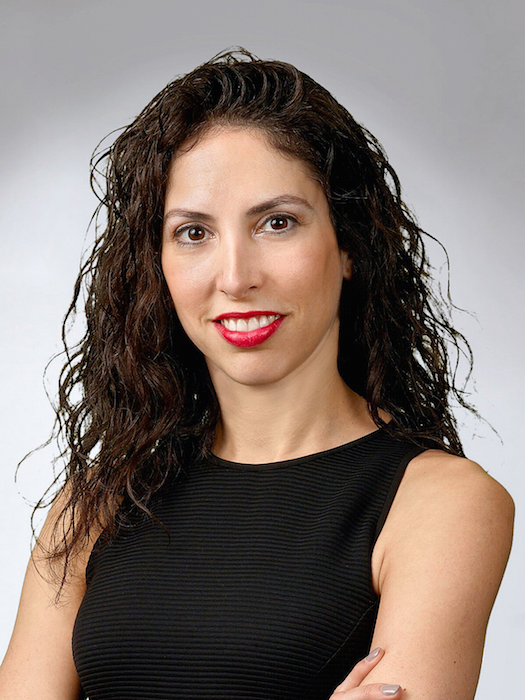When Iris Fischer, a partner at Blake, Cassels & Graydon LLP, walked into the Supreme Court of Canada this past October, the massive granite building was practically peaceful. Under ordinary circumstances, the courtroom buzzes: counsellors snap briefcases and talk over each other, while spectators and journalists arrange themselves in the gallery. And given the prominence of the case that brought her to Ottawa—Fischer is lead counsel for the Toronto Star, arguing to unseal the estate files of slain billionaire couple Barry and Honey Sherman—this hearing would have been a particularly hot ticket.
But in the midst of a pandemic, protocols change. Only four lawyers were allowed in the courtroom at one time. While the legal team for the Sherman family argued its case to keep the files private, Fischer and her colleague on the case watched on a livestream from a breakout room, where they were able to spread out, have a snack, even take off their wool robes. (After seven months spent working from home in sweats and leggings, she was quick to ditch those robes.) “The whole thing was a lot quieter and oddly comfortable,” says Fischer. “I wouldn’t want it all the time, but in some way, it reduces a bit of the pressure.”
Not that Fischer, the head of Blakes’ celebrated media practice, is inclined to feel the pressure. Over the course of her career, she has played a central role in some of the highest-profile media cases in the country: working on behalf of a coalition of major Canadian news outlets to unseal the Bruce McArthur search warrants; arguing, on behalf of the media and the public, to access documents in the Jian Ghomeshi trial; and successfully challenging an unconstitutional law that restricted access to tribunal records, allowing working reporters to secure those records more quickly and easily. “A lot of cases I do are very much in the public eye, but that doesn’t change anything for me,” says Fischer. “Every time I go to court, I’m there to be a vigorous advocate for my clients.”

Iris Fischer
Partner, Blake, Cassels & Graydon LLP
As a fringe benefit, she’s having a ball. Audrey Boctor, a friend and partner at the Montreal litigation boutique IMK Advocates, streamed Fischer’s appearance at the Supreme Court this fall. “She has this poise and confidence about her,” says Boctor. “You can tell Iris just loves what she does.”
The advocacy bug bit Fischer early: strong opinions and robust debate were encouraged around her Richmond Hill, Ont., dinner table, and her parents raised her to speak out against injustice. (It’s an approach that she and her husband, Fred Fischer, a litigator with the City of Toronto, take with their own eight- and 11-year-old kids, who are accustomed to being cross-examined.) “Growing up, there really was this ethos of don’t let anyone walk all over you, unless they’re members of your immediate family,” she says with a laugh.
Fischer admits that, when applying for a summer job during law school at McGill University, she was not very familiar with the field of media and defamation law. “But when I saw that Blakes had a whole practice focused on freedom of expression, I immediately thought, Oh, that’s for me,” she says. She was drawn to the idea that the legitimacy of our institutions and justice system comes from the public’s ability to scrutinize them. “The media has a really important role to play in any democracy because they are the public’s surrogate, particularly when reporting what’s happening in the courts.”
Soon after she started as an associate at Blakes, in 2006, Fischer contrived to get her office moved to the east side of the floor, where all the media lawyers sat. It also put her squarely in the path of Bert Bruser, elder statesman of the media bar, who would pass Fischer multiple times a day on his way out for a smoke. Soon, he was sending her with 10 minutes’ notice into some Scarborough court to oppose a publication ban that had just been issued. “She was fierce and feisty and articulate and effective,” says Bruser, who’s now retired. “Those are rare qualities in a kid lawyer.” He kept calling on her, and she honed her ability not just to think on her feet but to quickly identify the heart of the issue. That skill has served her well in all aspects of her practice: beyond her work in media, defamation, privacy and access to information, Fischer also handles commercial disputes, white-collar business crimes and internal investigations.
At press time, she was awaiting a decision in the Sherman case. Fischer recognizes that what the Supreme Court says is unlikely to be limited to these records specifically. “If the Court changes its long-standing presumption of open access to court records and makes it easier to restrict access, it will of course impact court openness more generally,” she says. But if there is a turn away from transparency, journalists across Canada know Fischer will be right back at work on their behalf.
Iris Fischer’s career timeline
1985: As a five-year-old, Fischer moves with her family from outside of Tel Aviv, Israel, to Canada.
2001: After two years at the University of Toronto, working on an undergraduate degree in psychology, she heads to Montreal for law school at McGill University. Her parents encouraged her to apply for early admission, which she did “almost to humour them,” she says. “But then I got in.”
2004: Fischer joins Blakes as a summer student.
2005: Fischer begins articling at Blakes, and she is hired back as a first-year associate. “I have a lot of different interests as a lawyer,” she says, “and I’ve been given the opportunity here to pursue lots of different cases.”
2009: Fischer joins lawyers Paul Schabas and Erin Hoult before the Supreme Court to represent the Toronto Star in Grant v. Torstar. The decision transforms Canada’s libel laws, protecting journalists who responsibly report stories that are in the public interest.
2015: After eight years as an associate at Blakes (including two maternity leaves), Fischer makes partner.
2019: She is named head of Blakes’ media group and Toronto lead of Blakes’ business crimes and investigations unit.
2020: Fischer appears before the Supreme Court of Canada to argue, on behalf of the Star and its investigative journalist Kevin Donovan, that the Sherman estate files should not be sealed from public view.
This story is from our Spring 2021 Issue.
Illustration by Salini Perera. Photo courtesy of Blake, Cassels & Graydon LLP.


